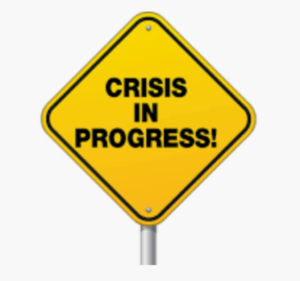The widespread panic and fear of the unknown has already taken place. As the outbreak of the COVID-19 continues across the globe, businesses, consumers and citizens of the world, in general, are worried about what happens next. There are hardly any bailout funds available to companies in East Africa from the Governments in the region. Businesses that have a lot of debt on their books are likely to be the most in peril and will need support from their bankers. Whether this support will be extended remains to be seen.
Reduction of taxes and interest costs (where pegged to Central Bank rates), fast-tracking the release of amounts owed to businesses by the Government and requesting banks to support businesses are some of the measures taken by some of the Governments in East Africa.
CEO’s will try their best to navigate through these unchartered waters, where in some cases 10% to 20% of normal revenues are expected in the next eight to twelve weeks.
From our experience, what business CEOs must do immediately is to enter into a survival and crisis management mode and implement some or all of the following:
Be decisive. Speed, now more than ever before is of the essence, and waiting for perfect answers will be counterproductive. You will need to deal with lots of uncertainties and you should not let this block decision making.
Set up your team. Set up a team whose members are constructive and can interact and openly communicate with each other to enable the business to succeed through this difficult period and achieve the intended results. The team you select need not necessarily be your senior management, but a small and selected team which is committed to overcoming the crisis. Do not select the office politician to be on this team no matter how good he/she may be at their work. Set up on Whatsapp or a similar app, a group for managing and communicating.
Communicate. Whether it’s with your bankers, customers, suppliers, employees and even with the Government, if there’s one thing I’ve learned over the last 25 years of my professional career, it is that in a downturn, the best way to manage relationships, during the crisis, is to openly communicate about the next twelve weeks or so.
Risk analysis. On a single page or two at the most, identify where your businesses’ greatest risks are, and identify where the business is most resilient. In doing the risk analysis also put in the worst-case scenario. Then assess your current slate of strategic initiatives against each scenario, determining whether each initiative should continue as planned, accelerate, or stop.
Plan. With your team, put into action a formal (but brief) plan for the next twelve weeks and update and improve the plan every two or three days as new and more valid information becomes available. I find the best way to do this is to prepare a thirteen-week cash flow forecast on a “worst-case scenario” basis and on a “most likely” basis given the current trends.
Write down the plan of actions in a number of different scenarios as follows:
Scenario 1 – Plan of action
Event 1 – Action 1
Event 2 – Action 2
These plans could include:
- Plans for a complete lockdown,
- Plans for a partial lockdown,
- Capacity plans,
- Plans to close,
- Employee and payroll plans,
- Repayment of loan plans,
- Work from home plans,
- Etc.
Secure access to systems. As many companies prepare for employees to work from home, companies must secure and monitor all VPN and remote access logs to prevent any hacking and/or cyber-criminal activity. Companies must also consider restricting system access to specific networks or locations in order to reduce exposure to the internet, mitigate risk, and ensure early detection of any cybercrime. Companies ought to have a point person responsible for the systems in your team.
Conserve cash. As sad as this sounds, you must conserve cash by reducing payroll and put in place temporary pay cuts, starting with the executive staff and not affecting the lowest and most vulnerable workers. Hold off on all discretionary spending including the payment of bonuses for FY 2019 etc.
Radical restructuring of your costs as well as your operations. In your planning, set trigger points that will drive your business to act at the right time in the various scenarios you have planned for.
Keep your employees safe. It may be extremely difficult for some companies to adopt PayPal’s, Bank of America’s, Morgan Stanley’s and Starbucks’ pledge of not laying-off any employees due to COVID-19. But certainly, it will not be difficult to keep employees who come to work safe, if certain measures are taken and adhered to. In addition to this, you could have an agreed formula for keeping employees on the payroll for the next two months. Employees are the Number 1 resource of any organisation and the right thing to do is to step up, to make sure they know that the business has got their back.
The lasting damage that COVID-19 has done will be seen in the coming months. It will not be business as usual at least for the next twelve weeks thus businesses will need to adapt, and quickly if they are to survive.
We are helping many businesses in East Africa overcome this crisis.
Call us on +254-736-515-168 or write to us on rajeev@cfoocentre.com


